hankyoreh
Links to other country sites 다른 나라 사이트 링크
The world's top 10 news stories in 2006
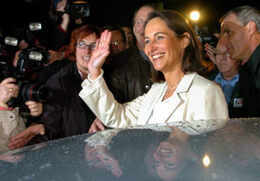
With 2006 coming to a close, the Hankyoreh has chosen the top 10 news stories from around the world.
Rise in female power"Female power" has swept the world. In the political arena, female politicians such as Chilean President Michelle Bachelet, German Chancellor Angela Merkel, French Socialist presidential candidate Segolene Royal, the U.S. Speaker of the House of Representatives Nancy Pelosi, and Senator Hillary Clinton have emerged as stars, while in the economic world, Indra Nooyi became the president and chief financial officer of Pepsi Co. But even in 2006, female lawmakers account for just 17 percent of the world's legislators, and the ratio of women whose position is vice president or higher at the world's top 500 companies compiled by Fortune Magazine stands at just 16.4 percent. The glass ceiling is still thick, but the sound of cracks forming in it have become even louder this year.
Japan's rightist government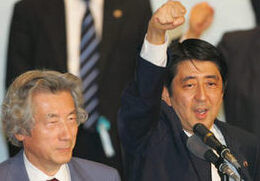
Japanese Prime Minister Shinzo Abe formed his Cabinet on September 26, with rightist politicians occupying most of the important public positions. In less than three months in office, Abe amended the basic educational laws, designed to guarantee a fair account of Japanese history in schools, and upgraded the nation's National Defense Agency to the level of ministry. He has insisted on amending Japan's so-called Peace Constitution during his term, in order to allow Japan to possess a stronger military. However, a series of factors, including Abe's failed budget reform, as well as his letting lawmakers, who had opposed the privatization of Japan's post office, which also functions as a bank, rejoin the ruling Liberal Democratic Party, have been interpretated as Abe's retreat from reform, and his influence has dwindled dramatically.
Conflict between European and Islamic cultures
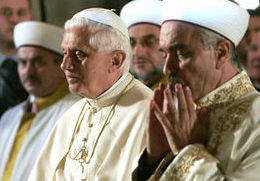
European and Islamic cultures, long tensely coexisting, came to a flash point this year. Danish cartoons satirizing the Islam prophet Mohammed, Pope Benedict XVI's controversial remarks regarding Mohammed, and a controversy surrounding the wearing of traditional Islamic dress in European public places have split Europe and Islam. The issue of Turkey's joining the European Union (EU) also unveiled European tensions surrounding Islam's religion and culture. Ceaseless conflicts since Islamic and Arabic immigrants began to come to Europe in greater numbers have seen a continent striving to seek a resolution of peace and co-existence throughout the year.
U.S. Democrats take control of Congress
The U.S. Democrats took control of Congress in the mid-term elections held in early November, the first time the Democrats have done so in 12 years. U.S. President George Bush who has been supported by a Republican-controlled Congress for the past six years, immediately replaced Donald Rumsfeld as defense secretary, Rumsfeld being the man behind much of the decision-making for the Iraq war. Other neoconservatives that had taken initiative in foreign policymaking, including the former U.S. ambassador to the U.N. John Bolton, found their power waning, while realists such as Secretary of Defense Robert Gates are making a comeback. Bush, however, still has not presented a concrete plan on how to deal with the situation in Iraq. With conflict with the newly Democrat-controlled Congress deepening, Bush's lame duck status is expected to increase.
Africa emerges as resource power amid conflicts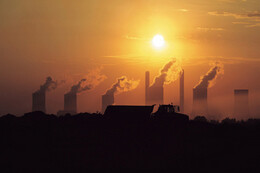
The international community has newly evaluated the economy of Africa, with the International Monetary Fund (IMF) forecasting that Africa would record a growth rate of 5.7 percent this year. As the entire world competes to secure resources, interest in Africa's oil and minerals has become keener. With enormous oil reserves, Africa is considered the last "growth engine'' on the earth. Much of the continent still has many problems to solve, such as poor infrastructure, high rates of HIV infection, and a corrupt power base that poorly manages its economy.
User-created content fever
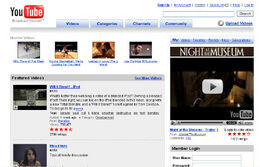
User Created Content (UCC) took the cyber world by storm this year. The American weekly Time magazine selected You Tube, an Internet where UCC in video form is easily posted to the Web, as the best invention of the year and "You" - users of this new UCC-driven media - as person of the year. About 65,000 new videos are posted every day on You Tube, which began to provide these services just a year ago. Google, the world's biggest Internet search engine, purchases You Tube for US$1.65 billion in October.
Aggravated Iraqi war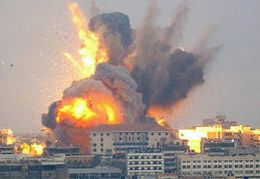
The U.S.-led war in Iraq, which began in March 2003, has become more violent. The Iraqi civilian casualties this year were estimated at nearly 50,000. It has become increasingly difficult to accomplish the goal of building a "free and democratic'' Iraq. The U.S. administration still does not want to withdraw from Iraq after paying an enormous financial and human cost. Meanwhile, neighboring countries such as Iran, Syria, and Saudi Arabia have gradually become involved in the issue, and Islamic fundamentalism in the region has been gaining power.
China continues rapid development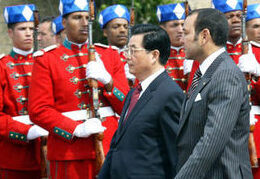
China achieved both diplomatic and economic successes this year. First, the nation has been evaluated as having opened a "new age" with the U.S., with China beginning to have dialogue over economic strategies with the United States. It also partly corrected uncomfortable relations with Japan and India. The nation established strategically cooperative relations with other Asian nations, and enjoyed remarkable success in energy diplomacy by inviting heads of 48 African countries to Beijing. China's foreign exchange reserve surpassed US$1 trillion, and China's benchmark stock index broke its all-time high. But China has been under pressure to revalue its currency and to control the pace of its economic development.
Wave of leftist leaders in Latin America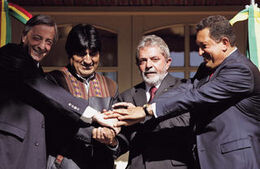
A strong leftist wind has swept Latin America. Venezuela's anti-U.S. President Hugo Chavez succeeded his third bid for presidency and Daniel Ortega, a Nicaraguan leader of the socialist revolution there in the 1980s, returned to power 16 years after leaving office. Luiz Inacio Lula da Silva of Brazil, Evo Morales of Bolivia, Michelle Bachelet of Chile and Rafael Correa of Equador, all of whom are left-leaning, won the presidential elections. They won the hearts of voters sick of corruption and the gap between rich and poor, a problem which has been worsened by an influx of new liberalism in those countries. A movement to converge the region's economies is taking place against the U.S.-led new liberalist policies.
Climate changes occur in succession
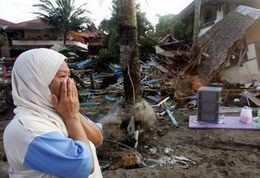
Please direct questions or comments to [englishhani@hani.co.kr]
Editorial・opinion
![[Column] Has Korea, too, crossed the Rubicon on China? [Column] Has Korea, too, crossed the Rubicon on China?](https://flexible.img.hani.co.kr/flexible/normal/500/300/imgdb/original/2024/0419/9317135153409185.jpg) [Column] Has Korea, too, crossed the Rubicon on China?
[Column] Has Korea, too, crossed the Rubicon on China?![[Correspondent’s column] In Japan’s alliance with US, echoes of its past alliances with UK [Correspondent’s column] In Japan’s alliance with US, echoes of its past alliances with UK](https://flexible.img.hani.co.kr/flexible/normal/500/300/imgdb/original/2024/0419/2317135166563519.jpg) [Correspondent’s column] In Japan’s alliance with US, echoes of its past alliances with UK
[Correspondent’s column] In Japan’s alliance with US, echoes of its past alliances with UK- [Editorial] Does Yoon think the Korean public is wrong?
- [Editorial] As it bolsters its alliance with US, Japan must be accountable for past
- [Guest essay] Amending the Constitution is Yoon’s key to leaving office in public’s good graces
- [Editorial] 10 years on, lessons of Sewol tragedy must never be forgotten
- [Column] A death blow to Korea’s prosecutor politics
- [Correspondent’s column] The US and the end of Japanese pacifism
- [Guest essay] How Korea turned its trainee doctors into monsters
- [Guest essay] As someone who helped forge Seoul-Moscow ties, their status today troubles me
Most viewed articles
- 1[Column] The clock is ticking for Korea’s first lady
- 2Hong Se-hwa, voice for tolerance whose memoir of exile touched a chord, dies at 76
- 3After 2 months of delayed, denied medical care, Koreans worry worst may be yet to come
- 4[Column] Has Korea, too, crossed the Rubicon on China?
- 5US overtakes China as Korea’s top export market, prompting trade sanction jitters
- 6Samsung barricades office as unionized workers strike for better conditions
- 7[Correspondent’s column] In Japan’s alliance with US, echoes of its past alliances with UK
- 8All eyes on Xiaomi after it pulls off EV that Apple couldn’t
- 9[Correspondent’s column] The US and the end of Japanese pacifism
- 10[Guest essay] How Korea turned its trainee doctors into monsters